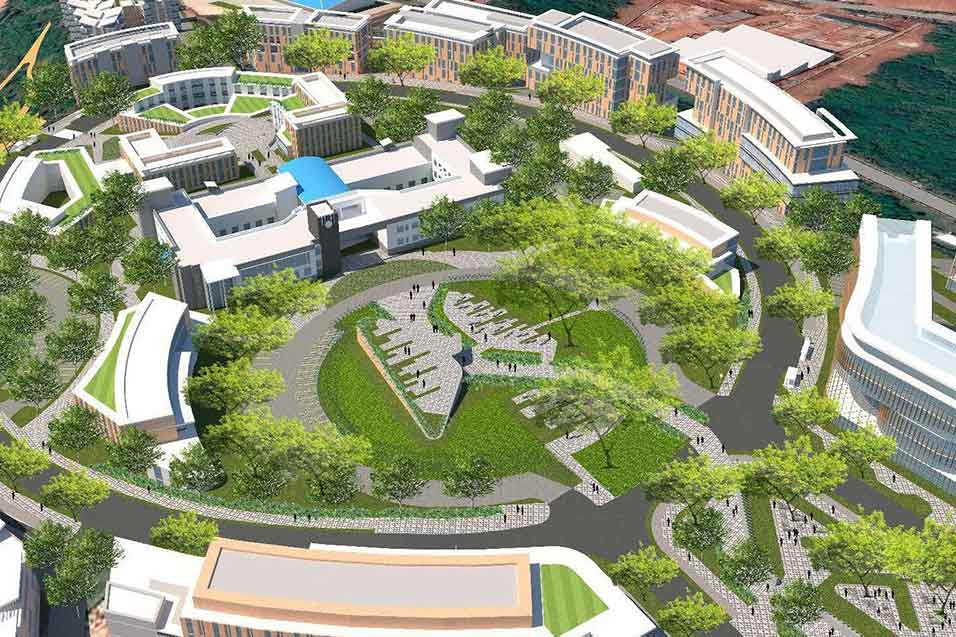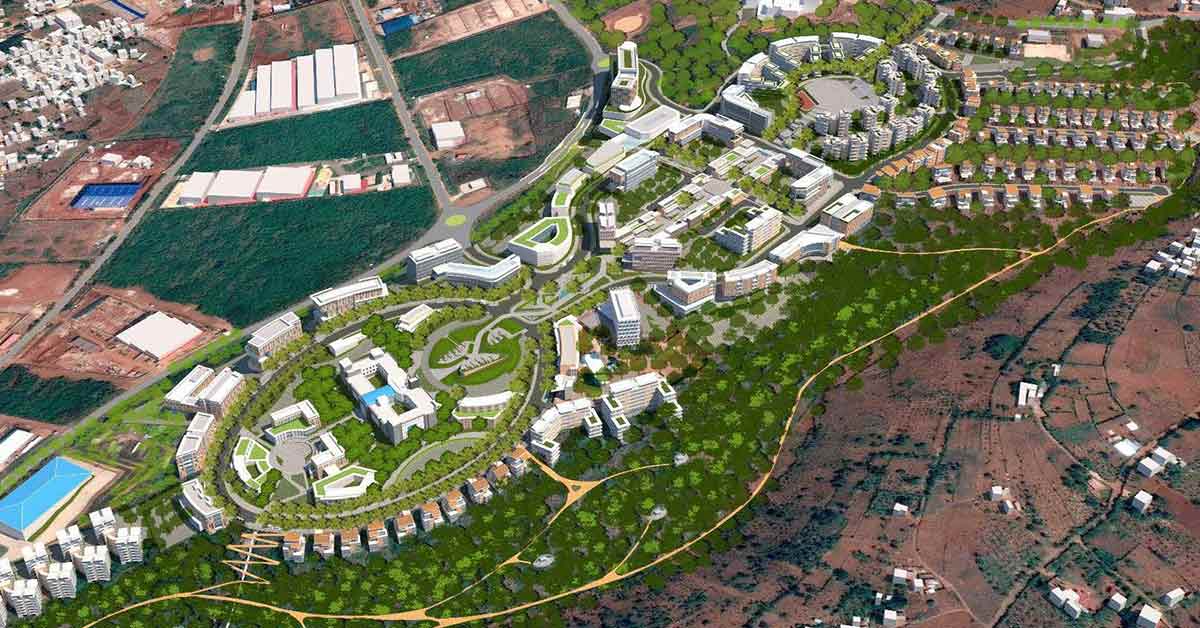Construction of Africa’s most advanced city takes shape as the Rwandan government teams up with Africa50 to implement it. The construction of the Kigali Innovation City took shape after Africa50 signed an implementation agreement with the Rwanda Development Board (RDB) and the Rwandan government. The agreement provides Africa50 exclusive rights to develop, operate, and commercialize the 61-hectare innovation city. Furthermore, the agreement was signed recently on the sidelines of the African Development Bank (AfDB) annual meetings in Nairobi. It seeks to unlock the next development phase following the unveiling of the urban master plan for Kigali Innovation City. Once completed, the city is expected to be Africa’s most advanced city with the latest technological amenities. Furthermore, Kigali Innovation City (KIC) is being developed as a mixed-use, master-planned innovation city.
The Significance of Africa’s Most Advanced City Once Completed
The construction of Africa’s most advanced city will underpin the creation of a technology ecosystem for Rwanda and Africa. The city is expected to host four Science, Technology, Engineering, and Mathematics (STEM)–focused universities, global technology companies, startup incubators, and other technology players. The agreement demonstrates Rwanda’s ambitions to leverage its project development, structuring expertise, and convening power to attract new and deep pools of capital to back the transformative project. The project is expected to stimulate $150 million in ICT exports annually.
Moreover, it will attract over $300 million in foreign direct investment. The KIC will host Grade-A residential, commercial, retail, and educational assets for local and international businesses. Prominent institutions will also use the amenities. The city’s master plan is a solution that aims to bolster Rwanda’s economy through investments and economic opportunities. Furthermore, it underpins Rwanda’s commitment as a trailblazer in providing advanced technological research for East African nations and the entire continent.
Also read:
Expected Challenges Facing the Construction of Kigali Innovation City
Even though the construction of Africa’s most advanced city is well-thought and planned, there are some setbacks. One of the significant challenges is the development of major infrastructure such as roads, electricity, and water. It is expected that the implementation of these necessities may pose a challenge. It is also expected to take up to three years to finish the first phase. Furthermore, financing may also act as a setback in realizing the goals of the innovation city. The multimillion-dollar project is expected to face obstacles in ensuring financial stability, an agenda that the Rwandan government is addressing. Lastly, other challenges, such as the environmental and social impact, may be a setback in constructing the city. These impacts must be carefully assessed and managed to ensure successful implementation.
The State of Affairs Regarding Kigali Innovation City
Africa’s most advanced city is a construction project that has received accolades from local and international entities around the globe. The Arab Bank for Economic Development in Africa (BADEA) has offered to support the project as a lender for the initial phase of shared infrastructure construction. The new smart city advances Rwanda’s strategy to develop and fund first-of-its-kind infrastructure assets that deliver high impact while generating attractive returns. “We will rush to implement and execute the agreed roadmap, with full support from the Government of Rwanda,” said Uzziel Ndagijimana, Minister of Finance and Economic Planning, Republic of Rwanda, who signed the IA on behalf of the government. Rwanda’s Minister of ICT and Innovation Paula Ingabire said, “We are committed to developing a thriving innovation ecosystem for Rwanda and the continent, which will support local, Pan-African and international tech companies to thrive.”
Also read:
Construction of Kigali Innovation City set to begin in September
